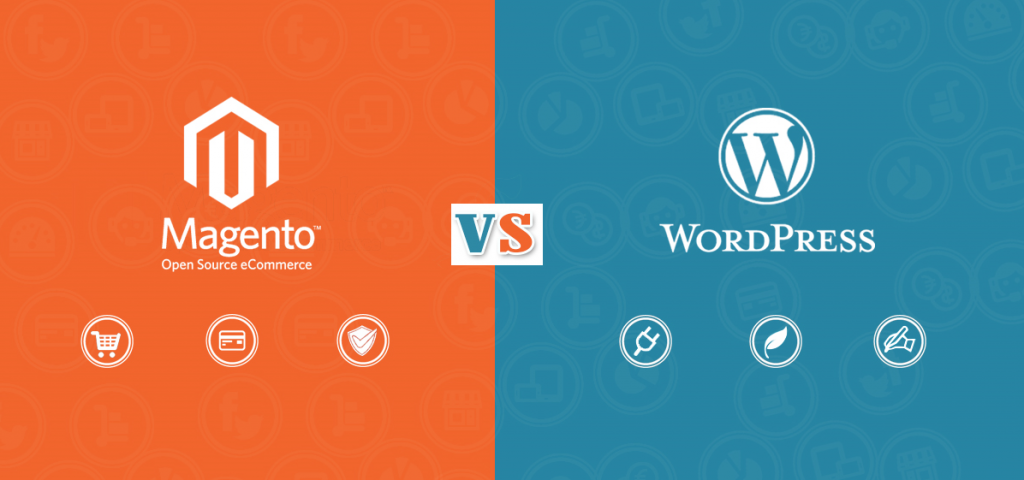
Looking to build an eCommerce site, but don’t quite know which platform to select? Below I discuss two common platforms – Magento & WordPress using WooCommerce.
On the surface both Magento & WordPress (with the inclusion of WooCommerce) appear very similar. Both are highly customisable, SEO friendly, easy to use, and benefit from a strong developer community. When broken down, Magento & WordPress are both CMS’s (Content Management Systems) that allow administrators to add, edit and manage site content with ease. But…their differences lie in their core purpose.
WordPress
WordPress started its life as an open source blogging platform and content management system. And it’s as a result of this initial purpose that there are literally tens of millions of WordPress based sites on the Internet. WordPress is known for being very user friendly, and for its easy-to-embed plug-in architecture. Out of the box so to speak WordPress isn’t an eCommerce platform, but when plug-ins such as WooCommerce are added, it becomes one of the leading and very capable, trusted Online Store Solutions available.
Magento
Magento is also an open source platform, the same as WordPress. It however is a focused eCommerce platform with dedicated features for this purpose. There are hundreds of thousands of websites based on this platform, ranging from small eCommerce sites through to well known retailers with huge transaction volumes and complexity.
Magento offers advanced functionality giving merchants the flexibility to set up online stores, providing rich features such as multi-store management, advanced reports, mobile commerce, marketing, search engine optimisation support and other handy management tools.
Which One is Right For You?
Answer this question by first understanding what the goal of your website is, not only now, but in 2 to 3 years. If you are aiming to start small, and either stay small or grow slowly then WordPress might be best for you as it’s relatively cheap to get up and running and quite nimble. It will give you all the tools, features and options you need to create a small online store without too much fuss or expense.
However if you aim to build a large, complex, fancy online store that will require more advanced features, reporting and scalability and functionality such as the integration of different shipping options or multiple payment gateways then Magento is where you should be focusing your attention. Keep in mind also that Magento will cost a bit more to get up and running but this is understandable given it’s a more advanced, powerful platform.





